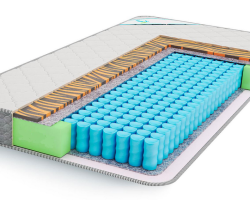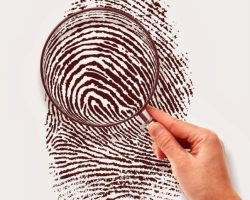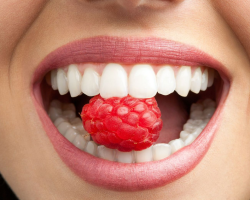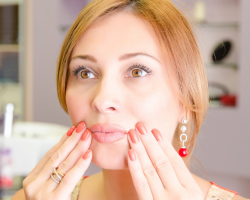Can a woman not have ovulation. The article describes the methods of treating such a problem in reproductive function.
Content
- Why does a woman have no ovulation - can this be: the cause of the absence, for what diseases?
- How to find out whether ovulation occurred: symptoms of its absence
- What to do if there is no ovulation: diagnosis before therapy
- Treatment of lack of ovulation: measures, what doctors to contact?
- Obet restoration tablets
- Injection to restore ovulation
- Preparations to reduce the level of prolactin in the blood
- Laparoscopy, if there is no ovulation: can it be returned?
- IVF, if there is no ovulation: an effective method of combating infertility
- Folk recipes for treatment, stimulation of ovulation: List
- SPA procedures in the absence of ovulation: the effectiveness of therapeutic mud
- General advice of specialists to restore ovulation
- Video: How to get pregnant in the absence of ovulation?
"Congratulations, you will have a baby" - Probably, these are the most welcome words that every woman wants to hear at a certain stage of her life path. All married couples sooner or later think about the birth of a little man, the continuation of the genus. But what if the pregnancy does not occur for a long time? First of all, you need to think about the absence of ovulation.
- Ovulation is a natural physiological process that occurs in the female body.
- It shows the natural ability to detect.
- This is the best period for conception of the baby, when the ripened egg leaves the ovary and is ready to meet with a sperm.
- The ovulation process does not occur every month-about two to three times a year in women there are anovulatory periods.
- But they do not affect the life of the body - the menstrual cycle is completely preserved.
The constant signs of lack of ovulation may indicate infertility. Their main symptom that can be traced independently is the absence of characteristic discharge that falls out in the middle of the menstrual period. The lack of ovulation can be associated not only with physical problems, but also pathological. Only a complete medical examination will help to identify the true cause of violations. But some questions about women's health can be answered independently. Read further.
Why does a woman have no ovulation - can this be: the cause of the absence, for what diseases?
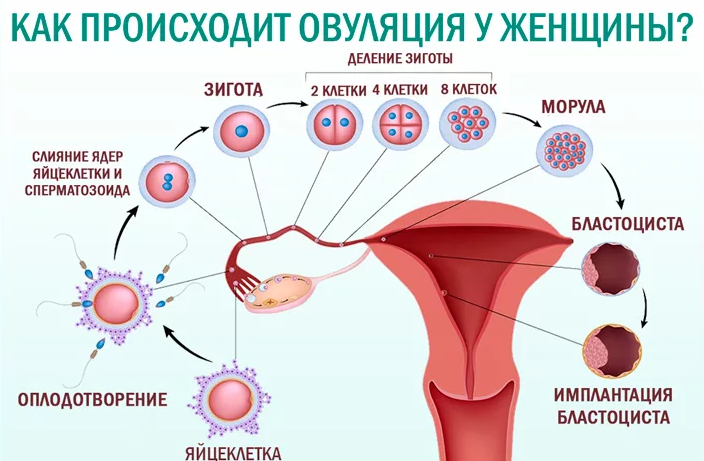
Ovulation in women - This is a monthly physiological process. During this period, the matured and ready for fertilization, the egg goes into the fallopian tube from the follicle and moves to the uterus. In some cases, this does not happen. Why does a woman have no ovulation - can it be? The lack of ovulation can be caused by many reasons, but the main ones:
- Current pregnancy, in women there is no ovulation position
- Short -term postpartum period
- The first two years after the menstrual cycle began
- The period of breastfeeding of the newborn
- Reception of contraceptives
- Cessation of hormonal drugs
- Anovulatory periods
The listed reasons relate to the natural physiological absence of ovulation. Its full restoration can occur at any time, after eliminating the causes.
Read on our website an article on what discharge are when ovulation, which should be normal. You will learn whether abundant discharge is the norm and how to feel ovulation.
But often the impossibility of ovulation can be caused by serious gynecological, endocrine problems and pathological processes, serious diseases. These include:
Sharp loss or weight gain:
- With a strong weight jump, a hormonal background is disturbed.
- An increase in body weight causes a problem with conception - the process of maturation of follicles is disturbed.
- In case of weight loss and the absence of a minimum fat layer, a female hormone - estrogen is not sufficiently produced.
Endocrine system diseases:
- The poor work of the thyroid gland or adrenal glands directly affects the ovulation cycle.
Head injury:
- Disruption of blood circulation in the brain.
Changes and violation in the pituitary gland:
- These include the appearance of neoplasms and excessive production of prolactin.
Change in the regulation of the hypothalamus:
- This is an important part of the brain.
- Is responsible for the course of many physiological processes, including the work of the female genital organs.
- Deviations usually appear due to neoplasms in this area, bacterial, viral infections, inflammation, vascular pathologies, etc.
Gynecological diseases:
- Various inflammatory processes lead to the occurrence of pathologies in the female genital organs, which leads to a lack of ovulation.
Congenital deviations in the structure of the ovary:
- It should be noted that anomalies in the structure of the body are rare.
Infectious gynecological processes:
- These include sexually transmitted diseases and STD.
- It can also be pathogens that fall into the vagina from the woman’s own organs and through dirty hands. Such pathogens are staphylococci, streptococci, enterococci, E. coli, etc.

Intensive, increased physical activity:
- Excessive enthusiasm for sports classes can lead to a lack of ovulation.
- In most cases, this applies to women with small body weight and a low level of fat layer.
Constant stress:
- Very often on the menstrual cycle, the lack of ovulation is influenced by protracted stresses, nervous tension, and the psyche overload.
- A change in the situation, moving to a new place of residence is a common cause of malfunction of the female cycle.
Age reasons:
- A reduction in the amount of ovulation is noted when menopause.
- Their decrease begins at about the age of thirty.
- If girls in anovalent cycles happen 1-2 times per year, then with age - almost every month.
- This is the difficulty of conceiving a child after 40 years.
Anovulation does not allow pregnancy. To identify the cause, it is necessary to undergo a complete medical examination. If the gynecologist does not find violations in the work of reproductive organs, it is necessary to check the endocrine system.
How to find out whether ovulation occurred: symptoms of its absence

Thanks to the constant control of the menstrual cycle and the period of ovulation, it is possible to identify the problem in the work of the female body. How to find out if ovulation occurred? The main symptoms of the lack of ovulation, which are easy to notice on their own, are:
- Changes in the basic temperature indicators.
- Irregular cycle.
- The absence of characteristic premenstrual syndromes.
- Abundant bleeding in the menstrual period.
- Ovulation occurs on 15-17 days The female cycle is accompanied by characteristic discharge - they become viscous and stretching. The lack of physiological changes indicates anovulation.
When one of the symptoms appears, you should contact the antenatal clinic. The gynecologist will help more accurately answer questions about women's health. To identify the reasons for the lack of ovulation, the doctor needs basic health information:
- The duration of the menstrual cycle
- The nature and abundance of blood discharge
In addition, the doctor may interest indirect causes - loss or weight gain, accompanying diseases, bad habits.
During the initial examination, the necessary biological materials are taken to assess the state of microflora and epithelial cells. The analysis allows you to identify the hormonal level of the reproductive system, the pathology of the development of neoplasms, and inflammatory processes. Having calculated approximately the day of ovulation, the gynecologist will give a referral for blood donation. Only by receiving a complete decoding of the results can I identify the cause of the problem with ovulation.
There are hardware methods for identifying anovulation - ultrasound. It is done for several months in the ovulation period.
What to do if there is no ovulation: diagnosis before therapy

Before starting treatment for the restoration of the reproductive system, the doctor must identify the cause of the lack of ovulation. What to do if there is no ovulation? The gynecologist conducts full diagnosis before therapy. The specialist must appoint and conduct:
- Back ovulation test. The test can be done at home on your own. It resembles a pregnancy test in appearance and actions - two stripes are displayed when ovulation occurs. In the clinic, instead of a test, it is possible to use an electronic ovulatory microscope or digital dough.
- Blood analysis for hormones. To determine the concentration of hormones, blood is donated to 2-4 days menstrual cycle.
- Ultrasound procedure. It helps to notice structural changes in the ovaries, inflammatory processes. By the size and number of follicles, it is possible to determine the symptoms of ovulation. For the reliability and confirmation of ultrasound results, it is prescribed several times.
- Scraping of the uterine endometrium. Analysis of scraping reveals inflammatory processes, determines the presence of ovulation.
Now that the diagnosis is made, the doctor prescribes treatment. Read further.
Treatment of lack of ovulation: measures, what doctors to contact?

Having determined the causes of anovulation, the doctor, first of all, will try to eliminate or reduce the effect of physical factors on the body - stress, regulation of body weight, and a decrease in physical activity. This begins the treatment of the lack of ovulation.
Read on our website an article about ways to stimulate ovulation. You will find out if it is necessary to do it.
What other events are appointed? What doctors to contact, except for a gynecologist?
- At the same time, the patient needs consultation with an endocrinologist and reproductologist.
- In cases of inflammatory processes, appropriate treatment is prescribed to help out the focus of the disease.
- With anatomical deviations, a surgical operation may be prescribed.
If the lack of ovulation is associated with a change in the hormonal background, special medical therapy is used to eliminate violations.
Obet restoration tablets

If the physiological problem is eliminated, but ovulation does not occur, the specialist prescribes drug treatment designed to stimulate the work of the female reproductive system. The action of spelled hormonal drugs is to strengthen the ovarian, pituitary gland, maturation of follicles, and the production of the necessary hormones. During the treatment period, the basal temperature is measured daily, the control ultrasound is prescribed.
- When using stimulating agents to restore ovulation, the probability of pregnancy increases by 70%.
- But it should be noted that drug therapy has high side effects.
- During treatment, the dose of hormones is constantly increasing, so the stimulating scheme is carried out no more than five times in life.
- An increase in the amount of stimulations can lead to the depletion of the ovaries, early menopause or the development of cancer formations.
Medication is quite long - tablets take up to four months. If it does not give the desired results, experts offer to resort to ECO or surgical intervention.
Injection to restore ovulation

Injecting with injections to restore ovulation is prescribed by a doctor not every woman who has a problem with conception. Injections give a positive effect only with a problem with the ripening and development of follicle.
The introduction of medicines is intravenous due to the following factors:
- Lack of yellow carts
- Constant repetition of anovolutionary cycles
- Regular miscarriages
- The threat of termination of pregnancy
Use several main types of injections:
- A drug based on human menopausal gonadotropin. It treats it - Menogon, pergonal and menopur.
- Recombinant hormone -based drugs: Puregon, Gonal-F.
- Injections for ovulation induction, including human chorionic gonadotropin - Perengal, proofhasa, choragon.
- Anti -estrogenic drugs, which is based on Clomiphen Citrate. They reduce the hormone estrogen, increasing gonadotropic hormones necessary for the growth of follicles.
The necessary dose of the drug is prescribed by a doctor. With injections, the size and maturation of the follicle is important constant ultrasound monitoring. If after 10 days he does not reach the drugs 15 mm - Stimulation is stopped.
Preparations to reduce the level of prolactin in the blood

Prolactin is an important hormone that affects the menstrual cycle, puberty, reproductive function. An excess of it in the blood indicates possible neoplasms in the body, disturbances in the central-nerve system, a decrease in the hypothalamus.
The main task of taking medications is to reduce the amount of prolactin in the blood to normal coefficients. This further leads to the restoration of ovulation and sexual function. Preparations to reduce the level of prolactin in the blood:
- The main group of drugs are dopamine agonists.
- The most commonly used - Norpollak, Rednex.
The main effect of use - a persistent decrease in prolactin in the female body, is achieved due to the blockade of the hormone and additional stimulation of dopamine receptors.
Laparoscopy, if there is no ovulation: can it be returned?

With the pathology of the ovulation cycle, its constant absence, it is possible to prescribe surgical intervention. An operation that allows you to get an egg from a follicle into a fallopian tube, and then into the uterus, is called laparoscopy. It is prescribed by a gynecologist if there is no ovulation. But is it possible to return an important process for a woman with this procedure?
- During the operation, the surgeon makes small punctures in the lower abdomen.
- Micro-sails are produced through them in the ovaries, giving the opportunity to get out to the egg freely.
Many women solve problems with this procedure. But some continue to hope. Therefore, no one can answer the question or not. If the specialist has prescribed laparoscopy to you, then you should go through, and if ovulation does not return, then it is worth choosing another treatment.
IVF, if there is no ovulation: an effective method of combating infertility
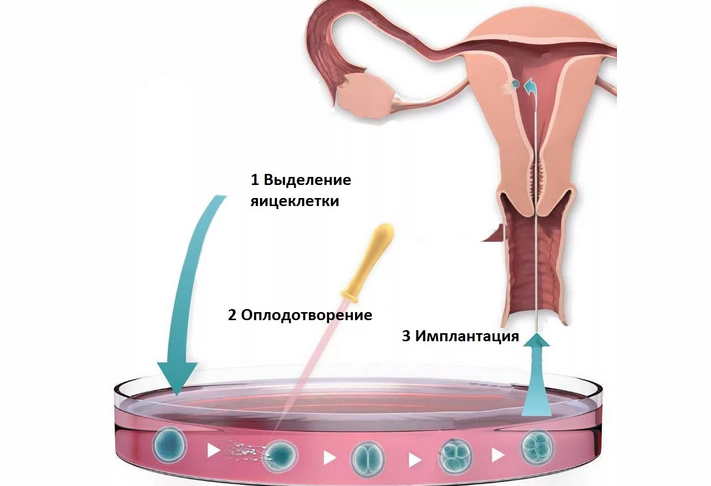
The IVF program cannot guarantee a 100 % pregnancy, but today it is the most effective method of combating infertility. If a woman does not have ovulation, then experts often prescribe such a procedure. This is how it is carried out:
- Women in the natural cycle stimulate ovulation with hormonal devices, thanks to which it matures up to 20 follicles.
- Their maturation is constantly monitored Ultrasound. With full readiness, ovarian puncture and egg fence are produced.
- After selecting the most active and high -quality eggs, they are placed in a cultural environment, where artificial fertilization is carried out.
- Embryos cultivate in the incubator no more than 5 daysThen they are transferred under the ultrasound control to the uterus.
- Usually planted no more than 2 embryos.
The remaining embryos at the request of the woman preserve.
Folk recipes for treatment, stimulation of ovulation: List

Along with a medical solution to the problem, experts advise using folk methods of treatment, stimulation of ovulation.
Remember: Traditional medicine does not completely replace medical schemes, but only can complement and increase the effectiveness of treatment.
Below you will find a list of recipes from medicinal herbs. In stimulation, ovulation can help:
Sage decoction:
- The grass is rich in phytoestrogen - a plant substance similar to the estrogen of man.
- The use of the drink contributes to the growth of follicles, so it is recommended in the first phase of the menstrual cycle.
- Brew 1 tablespoon of grass in a glass of boiling water and put in a water bath on 15 minutes. Then cool, strain and take a tablespoon of a glass 3 times a day.
Lime -colored decoction:
- Linden flowers also contain phytoestroogen. In addition, the decoction favorably affects the nervous system and has an anti -inflammatory effect.
- As a stimulation of the reproductive system, it is consumed in the first half of the female cycle.
- A tablespoon of grass is poured with a glass of boiling water. Keep in a water bath 20 minutes. Then cool, strain and take half a glass 2 times a day.
Red brush decoction:
- The healers speak of him as a "female plant."
- Helps restoration of balance between estrogen and progesterone - hormones affecting the maturation and growth of follicles.
- It is necessary to brew grass in the same proportion as described in previous recipes: 1 tablespoon is poured with a glass of boiling water. Now wrap a bowl with a decoction to cooling. Then strain and divide the infusion by 3 times. You need to use during the day.
Rose decoction:
- Perhaps the most unusual remedy for the female function.
- To prepare a magic drink, it is undesirable to use flowers from the store. Buy raw materials for decoction only in a pharmacy.
- People's healers explain the popularity of tea petals high vitamin e.
- Pour one tablespoon of dried petals with boiling water and cook over low heat for 10 minutes. Bring the volume of the decoction up to 200 ml, diluting with boiled water, and take a third of a glass, 3 times a day.
You can choose one type of decoction and take only it with a course, or you can alternate or even combine it. But before using the decoction, consult a doctor.
SPA procedures in the absence of ovulation: the effectiveness of therapeutic mud

The use of therapeutic mud enhances hormonal activity, eliminates inflammatory processes in the entire body, and helps the restoration of reproductive female functions. Their effectiveness has long been proven in the treatment of diseases of the reproductive system. Generally, sPA procedures They help well in the absence of ovulation and other problems associated with female genital organs.
Experts also often advise therapeutic and relaxing baths with seaweed. The composition of kelp is rich in iodine, potassium, zinc and phosphorus. Algae have a positive effect on the nervous system and heart function. Thanks to the high content of alginates, kelp prevents the development of oncology, stabilizes the thyroid gland, and improves the general hormonal background.
General advice of specialists to restore ovulation

Doctors argue that maintaining the body in good form is the best recommendation for the prevention of diseases of the reproductive system. Restoring fragile female health is much more difficult than preserving it. Below you will find general advice of specialists to restore ovulation. To maintain a hormonal background, the reproductive system needs to try:
- Eat correctly, avoiding sharp leaks of weight.
- Consume vitamins and trace elements.
- Systematically visit a gynecologist.
- Remember that a frequent change in sexual partners increases the risk of infections.
- Conduct a regular sex life, as it has a positive effect on female health.
- Follow your health, even with its small deviations, contact a specialist.
- To refuse from bad habits.
- Do not lift and do not wear weights.
- Less nervous.
Statistics claim that most women with the problem of lack of ovulation and the inability to get pregnant, after timely consultation with a gynecologist, medical treatment, restore reproductive function. If there is no menstruation, you need to visit a doctor to identify the causes of a malfunction of women's health and undergo treatment. Only thanks to the patience and observance of all the appointments of the doctor, a woman can restore her health, establish a ovulation process and become pregnant. Good luck!
Video: How to get pregnant in the absence of ovulation?
Read on the topic:




